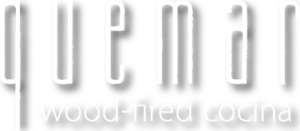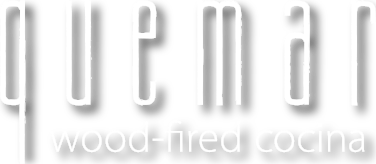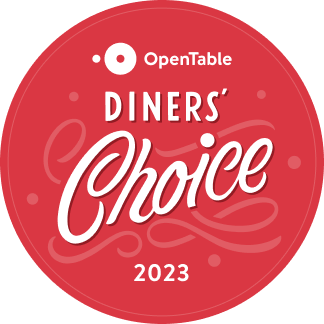Restaurant Safety and Health: Best Practices for Compliance
Food safety and health are critical concerns in the restaurant industry. Restaurant owners and managers must ensure their establishment complies with local, state, and federal regulations. By doing so, they can protect their customers, employees, and their business. This blog post will discuss some best practices for restaurant safety and health compliance.
Employee Training
Employee training is an essential component of restaurant safety and health compliance. It helps ensure that each employee knows their role and responsibilities in maintaining a safe and healthy workplace. This can help to minimize the risk of foodborne illnesses, slip-and-fall accidents, and other workplace hazards.
With proper training, employees can recognize hazards, understand how to report them, and act accordingly in emergencies. Additionally, training helps ensure that employees can perform their duties effectively and efficiently. Overall, employee training is an essential component of restaurant safety and health compliance that should be noticed by owners, managers, or employees.

Food Storage
Food safety and health are essential to the well-being of restaurant patrons, and to comply with these standards, restaurants must take several steps to ensure their food is safe and properly stored. One important practice to implement is ensuring that all food products are clearly labeled with the name of the product, its active ingredients, and any allergens. This helps customers know what they are eating and which foods may not suit certain individuals.
Another important practice is regularly checking the temperature of prepared foods and storing them at the correct temperature to prevent foodborne illness. It is also advisable to regularly sanitize kitchen surfaces, equipment, and utensils to prevent the spread of pathogens. Finally, it is important to train staff in proper food handling practices, so they can identify potential health hazards and take appropriate action if necessary. By implementing these best practices in food safety and health, restaurants can provide a safe and healthy environment for their customers.
Equipment Maintenance
Restaurant safety and health best practices can be broadly categorized as those measures required to comply with legal and regulatory requirements, as well as those measures that reduce the risk of foodborne illness or other accidents in the kitchen. In this article, we will focus on the second type of best practice, which is known as equipment maintenance.
Restaurant equipment maintenance involves regular inspections and maintenance of machines, tools, utensils, and other kitchen equipment to ensure that they are in good working order and are free from defects. This ensures that the food prepared in the restaurant is safe and does not present any health risks.
Sanitation
Sanitation is one of the most critical components of restaurant safety and health compliance. Maintaining a clean and hygienic environment is essential in preventing the spread of diseases and infections that could lead to severe health consequences for customers and staff.
Here are some best practices for sanitation in restaurants:
- Establish a routine cleaning schedule for all restaurant areas, including the kitchen, dining room, and bathrooms.
- Train employees on proper hand washing and hygiene practices, including how to use gloves and when to use them.
- Clean and sanitize all food contact surfaces regularly, including cutting boards, countertops, and utensils.
- Use separate cutting boards and utensils for raw and cooked food to prevent cross-contamination.
- Ensure all food is stored properly to avoid spoilage and contamination.
- Regularly check and maintain all equipment, such as refrigerators and ovens, to ensure they are clean and functioning correctly.
- Use chemical sanitizers that are safe and approved for use in food service establishments.
- Dispose of garbage and waste regularly and safely.
Following these best practices will help to ensure a clean and safe environment for both customers and employees. It will also help restaurants to comply with health and safety regulations and avoid penalties or legal issues related to sanitation.
Pest Control
Pest control is an essential aspect of maintaining safety and health in restaurants. Pests such as rodents, flies, and cockroaches can significantly threaten food safety and spread diseases. Implementing best practices for pest control to prevent pest infestation is crucial.
The first step is to regularly inspect the restaurant’s premises to identify and address any conditions that could attract pests. This includes proper waste management and disposal, sealing cracks and holes in walls and floors, and ensuring that food storage areas are clean and dry.
Another important practice is establishing a pest control program that includes regular inspections, monitoring, and treatment. Pest control professionals should be hired to conduct regular inspections and identify potential pest problems. They can also guide on preventing pest infestations and recommend appropriate treatment measures.
Health Inspections
Health inspections are critical for ensuring the safety and quality of food served in restaurants. They can help ensure that restaurant staff follows safe practices and protects patrons from harmful toxins.
Inspections typically occur every few months or annually and may focus on different areas of the restaurant, such as cooking, preparation, storage, and handling. Different types of inspections may be conducted by government officials or third-party experts, depending on the type and scale of the restaurant.

Allergen Management
Allergen management is a critical component of restaurant safety and health. It ensures that the restaurant is free from potential allergens, such as food allergens, bacteria, and viruses, so customers can enjoy a safe and healthy meal. It also involves educating customers about potential allergens and providing them with options for dining safely.
Allergen management involves reducing or eliminating environmental allergens, such as using proper hygiene practices, maintaining clean equipment, and storing food properly. It can also involve using different food products, such as cooking methods and ingredients, to reduce the allergen content of foods served at the restaurant.
Final Thoughts
Restaurants are popular places to eat and are also popular targets for attack. Protecting your restaurant employees and customers from harm is essential, and several best practices can help you do that. By following these guidelines, you can ensure that your restaurant is safe and healthy for everyone involved.
At Quemar Wood-Fired Cocina, we take safety and security very seriously. We know that following these guidelines will help us protect our employees and customers from harm, so we strongly encourage you to do the same. If you have any questions or suggestions, please don’t hesitate to contact us.




